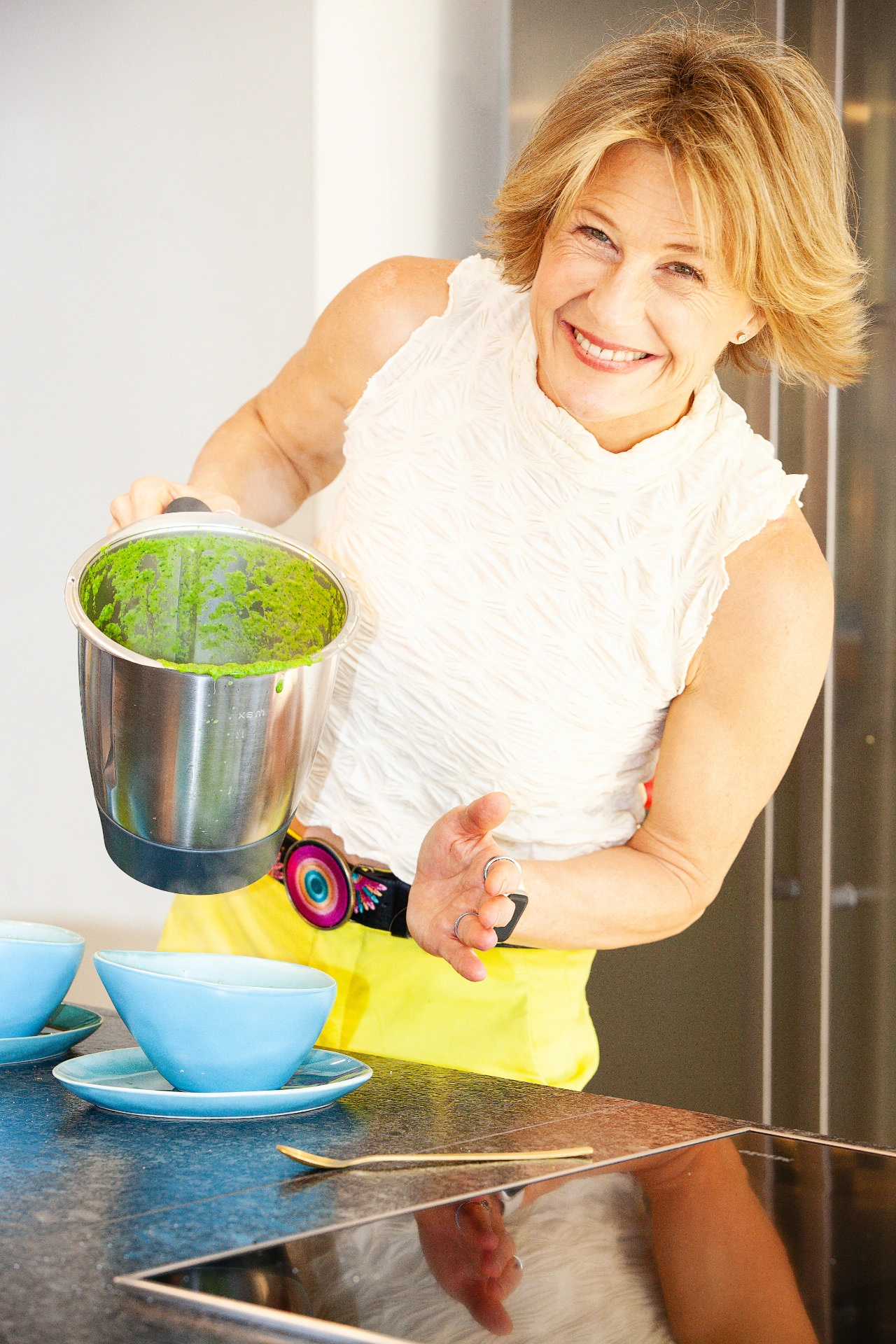
Probiotics are helpful bacteria that may support digestion as well as offering other many other health benefits.
The benefits include rebalancing our gut microbes to help support digestion and help create balance in the gut. The bacteria in our gut communicate with our intestinal cells. Think of your microbiome like a DJ turning up or dialling down different functions in the body. This might be the delicate balance of our hormones, our neurotransmitters or inflammation! This means that there is so much more to our gut microbes than just gut health.
Benefits of taking probiotics
- Gut health
One of the main reasons we take probiotics is to flood the body with helpful bacteria and to help repopulate the gut. More specifically this is how probiotics support gut health. Some strains may help to reduce bloating or diarrhoea. - Preventing the colonisation of harmful bacteria and parasites. Having good amounts of good bacteria makes it harder for non-beneficial bacteria to multiply as they compete for space. I call this crowding out.
- Production of Short Chain Fatty Acids (SCFA)
Our gut microbes make SCFA which are vital to the health of our gut lining. These act as a food source for the fast turnover cells lining the gut, called enterocytes, which get replaced around every 5 days. - Digestive support and manufacturing vitamins
Beneficial microbes are also necessary for helping us digest our food and manufacturing vitamins, such as the B vitamins and vitamin K. - Metabolising toxins and xenobiotics. A xenobiotic is a chemical substance found within an organism that is not naturally produced or expected to be present within the organism.
Benefits Outside the GUT
The activity of the microbiome has far reached effects on our health and is not limited to digestive health. Other effects of gut bacteria include:
- Modulating and metabolising hormones in the body, such as oestrogen. We call this part of the gut, the Estrobolome. This is a group of bacteria in the gut capable of metabolising and modulating levels of circulating oestrogen. This means that the gut microbes also play an important role in oestrogen metabolism. There are beneficial strains here as well as non-helpful strains too.
- Regulating our immune system. Around 70-80% or our immune cells are located in the gut and help to regulate our immune cells. They also produce substances that can reduce inflammation. Our bacteria can therefore communicate with our own immune cells.
- Improving glucose control. Some probiotic bacteria, especially the Lactobacillus strains, are thought to play an important role in blood sugar balance.
- Mental health
One surprising benefit of a beneficial bacteria is that gut bacteria help to produce, stimulate or modulate hundreds of neurochemicals or neurotransmitters that affect mood, learning and memory. Around 95% of our serotonin is manufactured in the gut. This can influence the way we feel, from being anxious, calm or happy. There is plenty of research linking poor diversity in the microbiome to conditions such as depression, anxiety and even brain fog.
What you should look for when buying a probiotic supplement
I like to look for supplements that contain both Lactobacillus and Bifidum bacteria to increase diversity in the gut.
With so many available, it can be difficult to know which one is right for you. While there are some benefits of using specific strains for certain conditions, for example early research has shown that Lactobacillus plantarum might be helpful in lowering cholesterol, we should be looking at the specific strains as well as the CFU’s.
Try and choose a probiotic with as many different strains as possible. Some of my favourites are Lactobacillus acidophilus, Lactobacillus casei, Lactobacillus rhamnosus and Lactobacillus plantarum as well as Bifidobacterium bifidum, Bifidobacterium breve or Bifidobacterium longum.
CFU’s – Colony forming units. (The number of bacteria per dose). Aim for a dose of at least 1 billion CFUs for maintenance and up to 50 billion post antibiotics.
Some probiotics now have additional ingredients. These might include:
Prebiotic fibres
Many probiotics now come with prebiotic fibre to support their growth in the gut – think of it like fertiliser! These may appear on the ingredients list as inulin, FOS or GOS.
Saccharomyces Boulardii
This is actually a friendly yeast with probiotic qualities. This can be beneficial if diarrhoea is one of your main symptoms.
Spore-based
There is a new kid on the block, called spore-based probiotics. These are normally species of Bacillus which are dormant and therefore acid resistant. This means that they are even more likely to survive their passage through our stomach acid and come back to life when they reach the right part of our intestines.
When will you notice a difference from taking probiotics?
Some people notice an improvement in digestive symptoms in a matter of days, others need around 4 weeks to notice a difference. Some people may not notice anything at all!
Occasionally, people find that probiotics can make their symptoms worse. This really depends on the root cause behind the symptoms.
Some people experience mild bloating initially that goes away over time.
The best time to take probiotics
The most dangerous part of the journey for our probiotic friends is to survive our stomach acid. With a pH of 1.5-3.5, the stomach can prove deadly for these LIVE travellers. There are a few tricks to improve survival.
Powders
Take powdered probiotics in water, on an empty stomach. These bacteria have no protection and need to reach the gut as soon as possible. When we drink the water and probiotics together, they are more likely to slide over the stomach acid and slip into the small intestine unscathed. Speeding up the amount of time they spend in the stomach acid can greatly increase their chances of survival.
Capsules
Probiotic capsules should be taken WITH FOOD. Capsules are more likely to have to stay in the stomach for digestion. If we take the capsules on an empty stomach, our stomach acid will be at its highest level and their survival rate may be poor. Taking capsules with food can increase their survival as the food dilutes the stomach acid a little and gives them a better chance of reaching the small intestine intact.
How do the various strains benefit us?
Mood and Mental Health / Brain Health
The strains that have probably received the most research in this area for supporting conditions such as anxiety and depression and low mood are Lactobacillus acidophilus and Bifidobacterium longum. Other strains that have shown promise in clinical research include Lactobacillus casei, Lactobacillus rhamnosus and Bifidobacterium bifidum.
Cardiovascular Health
This is a new area of research, but studies are showing that certain Lactobacillus strains may help to modulate cholesterol in the gut, such as Lactobacillus plantarum.
Diarrhoea
Saccharomyces Boulardii is the star and can often stop diarrhoea in its tracks! It’s actually a friendly yeast but comes under the banner of probiotics.
Constipation
Rather than go in with a probiotic, this is where PREBIOTICS are important. Adding FOS (fructoligosaccharides, inulin or partially hydrolysed Guar gum PHGG can be a game changer!)
Oestrogen Metabolism
The Estrobolome is a group of bacteria in the gut capable of metabolising and modulating levels of circulating oestrogen. Some bacterial strains can make an enzyme called beta-glucuronidase that breaks down the oestrogen in our gut marked for excretion and recirculates it back into our bloodstream again! Taking a good quality lactobacillus / bifidum probiotic may help to crowd out these unhelpful bacteria.
Bladder Health
The most researched strain for bladder health and recurrent UTI’s is probably Lactobacillus rhamnosus. While more research is needed to ascertain its effectiveness, early research is promising.
Best for antibiotics
Saccharomyces boulardii is the probiotic of choice while taking antibiotics. While termed an probiotic is it actually a friendly / helpful yeast. This means it is immune to the effects of the antibiotics and can get to work straight away to help repopulate the gut. It may also help to reduce antibiotic associated diarrhoea.
Probiotic brands I would recommend
I choose my probiotics carefully for each client’s needs in clinic.
My advice when taking probiotics
Follow the advice on the pack! Taking capsules on an empty stomach or taking powders with food may mean that we get less benefit from our probiotics,
Hot drinks. Having a hot cup of tea or coffee after taking your probiotic may also destroy some the live organisms as they do not like heat.
Poor storage. Do check whether your probiotics need to be stored in the fridge or can tolerate ambient temperature. Equally don’t leave your probiotics out on a warm windowsill.
About the Author, Dominique Ludwig, Nutritionist MSc and Nutritional Therapist mBANT
Dominique Ludwig is an accomplished Nutritionist MSc., and Nutritional Therapist who is also BANT, CNHC and AFMCP accredited. Dominique works in numerous health conditions using a personalised nutrition approach.She specialises in her signature group programmes Renew Reset Recharge® programme and The Triple 30 Plan and runs a busy clinic in the heart of the South Downs where she works with her private clients as a Nutritional Therapy Practitioner, offering personalised Renew Reset Recharge® appointments.Dominique is also a double award-winning nutritionist. Dominique has over 30 years’ experience as a King’s College, London qualified Nutritionist and almost 20 years as a registered Nutritional Therapist.
Dominique works with many high-profile and A-list clients, known and respected for her discretion, expertise, and trustworthiness. Dominique works out of her own busy practice, Dominique Ludwig Nutrition Limited, in Hampshire as well as Meyer Clinic in Chichester. Dominique has helped over a thousand clients, globally, live healthier lives. She is a regular contributor to The Times, The Sunday Times and Times 2, Sheerluxe, Top Sante and many other magazines and podcasts.
DISCLAIMER:
Features published by Dominique Ludwig are not intended to treat, diagnose, cure or prevent any disease. Always seek the advice of your GP or another qualified healthcare provider for any questions you have regarding a medical condition, and before undertaking any diet, exercise or other health-related programme. Please refer to our Terms and Conditions and Medical Disclaimer for more information as well as our Webiste Terms and Conditions.





